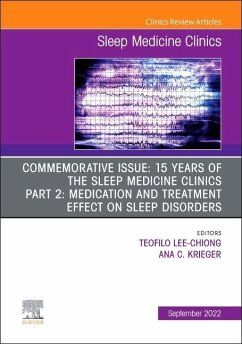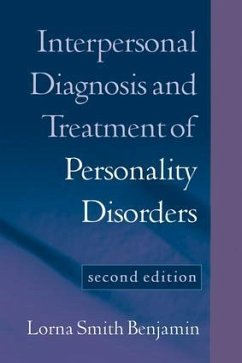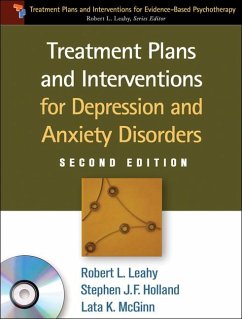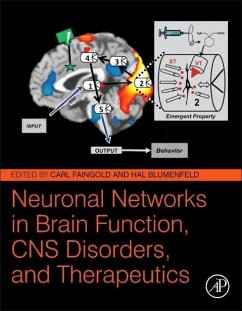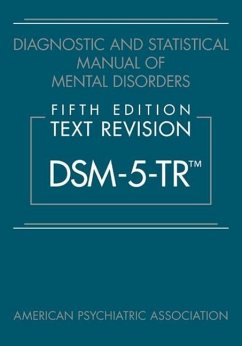
The Science and Treatment of Psychological Disorders, with eBook Access Code
Versandkostenfrei!
Versandfertig in 2-4 Wochen
201,99 €
inkl. MwSt.

PAYBACK Punkte
101 °P sammeln!
The Science and Treatment of Psychological Disorders blends theory and research with practice and clinical application to provide learners with a solid foundation in psychological disorders and develop their understanding with up-to-date and relevant research, examples, and contexts. From its first edition, the focus of this book has always been on balancing contemporary research and clinical application while involving the learner in the problem-solving engaged in by clinicians and scientists. It continues to emphasize an integrative approach, showing how psychopathology is best understood by...
The Science and Treatment of Psychological Disorders blends theory and research with practice and clinical application to provide learners with a solid foundation in psychological disorders and develop their understanding with up-to-date and relevant research, examples, and contexts. From its first edition, the focus of this book has always been on balancing contemporary research and clinical application while involving the learner in the problem-solving engaged in by clinicians and scientists. It continues to emphasize an integrative approach, showing how psychopathology is best understood by considering multiple perspectives-genetic, neuroscientific, cognitive-behavioral, and sociocultural-and how these varying perspectives produce the clearest accounting of the causes of these disorders, as well as provide insights into the best possible treatments. With this new sixteenth edition, "Abnormal Psychology" is dropped from the title. The importance of stigma and mental illness is discussed throughout-never is this more important than now when many social ills such as gun violence are too easily blamed on mental illness while we continue to warehouse people with psychological disorders in jails at an astonishing rate. AN INTERACTIVE, MULTIMEDIA LEARNING EXPERIENCE This textbook includes access to an interactive, multimedia e-text. Icons throughout the print book signal corresponding digital content in the e-text. Case Study Videos and Pause and Ponder Activities: A collection of fourteen 7 to 10 minute Case Study Videos presents an encompassing view of a variety of psychological disorders, featuring people experiencing these disorders and their families describing symptoms from their own perspective. In addition, each video provides concise information about the available treatment options and commentary from a mental health professional. Each video is presented in the context of a Pause and Ponder activity with the following elements: Part I: Pause: Readers are asked to read several short examples of everyday life situations facing a person, or people, with a particular disorder and assess their own ability to empathize. Part II: Learn: Readers are directed to view the Case Study Video and answer a series of questions with interactive self-scoring. Part III: Ponder: Finally, readers are asked to respond to one or more open-ended questions and to reassess their ability to empathize. Interactive Figures, Charts & Tables: Appearing throughout the enhanced e-text, interactive figures, process diagrams, and tables facilitate the study of complex concepts and processes and help students retain important information. Even many of the simplest figures are interactive to encourage online readers to pause and absorb the information they present before scrolling on to additional reading. Interactive Self-Scoring Check Your Knowledge Questions and Practice Quizzes: Students can check their answers to the Check Your Knowledge questions at the end of each major chapter section instantly, and each chapter includes a self-scoring Practice Quiz to help prepare for graded assignments and exams.




